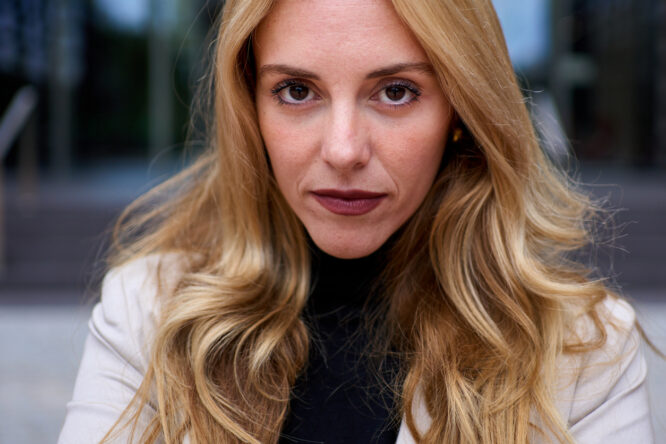Healing from a toxic relationship isn’t some dramatic overnight breakthrough.

It’s slow, unglamorous, and full of subtle changes you might not even notice at first. The chaos that once felt normal starts to feel heavy. The silence that used to scare you becomes a relief. You begin unlearning the patterns that once defined your worth, and piece by piece, you come back to yourself. If you’ve been there, you’ll recognise these subtle but powerful signs that your healing is underway, even if it doesn’t always feel like progress.
1. You stop mistaking anxiety for attraction.

That nervous energy that used to feel like chemistry? It doesn’t hit the same anymore. You notice when someone’s unpredictability or intensity makes you feel on edge instead of excited, and you start to pull away instead of chasing it. It’s not that you don’t want connection anymore. It’s that your body’s learned that chaos isn’t love. Calm doesn’t bore you now. It comforts you.
2. You feel less urgency to respond to everything right away.

Where you used to panic if you didn’t reply instantly or felt pressure to always be “on,” now you breathe first. You no longer feel the need to over-explain, defend, or apologise for taking space. This isn’t detachment; it’s self-trust. You know that the right people won’t need you to abandon your peace just to feel secure in the relationship.
3. You don’t tolerate backhanded comments anymore.

Passive-aggressive digs or jokes at your expense used to slide by. Maybe you laughed it off, maybe you internalised it. Now, those comments don’t sit the same. You notice the sting. You take it seriously. More importantly, you stop making excuses for people who deliver cruelty in a charming tone. You don’t need to be “cool” with being disrespected.
4. You stop arguing just to be understood.

In the past, you might’ve bent over backwards trying to explain your side, prove your worth, or fix the misunderstandings someone created to keep control. Now, you pick your peace over winning the point. It’s not because you’ve given up. It’s because you’ve learned that your clarity doesn’t require someone else’s validation. Some people twist things, no matter how carefully you speak. You stop needing to untangle it.
5. You no longer crave their chaos to feel alive.

At one point, the high-stakes drama of a toxic relationship might’ve felt intense, addictive, or even romantic. Now? You feel the exhaustion underneath it, and you crave stability instead of the emotional rollercoaster. There’s a deep exhale in your nervous system when nothing’s being provoked. You realise that peace is not dullness—it’s safety, and it’s earned.
6. You catch red flags early without making excuses for them.

You used to explain things away—“they’re just stressed,” “they didn’t mean it like that,” “everyone has flaws.” Now, you pause. You clock the patterns, and you don’t override your instincts just to keep the connection going. This isn’t cynicism, it’s clarity. You’re not paranoid, either. You’re just not ignoring yourself anymore.
7. You stop feeling guilty for needing reassurance.
 Source: Unsplash
Source: Unsplash In a toxic dynamic, asking for clarity or support might’ve been used against you. Maybe you were called needy, dramatic, or too sensitive. Now, you see reassurance as a normal human need, not a flaw. You also get better at giving it to yourself. You learn how to self-soothe, not because you don’t need other people, but because you’re finally becoming someone you can depend on, too.
8. You start to enjoy being alone—really alone.
 Source: Unsplash
Source: Unsplash Time by yourself used to feel uncomfortable, even scary. It made you anxious, like silence meant abandonment. Now, solitude feels like safety. Like space to breathe, process, and just be. You realise you were never afraid of being alone—you were afraid of the stories you’d internalised when no one else was around to distract you. Those stories are starting to soften now.
9. You stop over-explaining your decisions.

When you’re healing, you start saying things like “I don’t want that,” or “That doesn’t work for me” without launching into a monologue. You stop needing to justify your boundaries or make them palatable for other people. This is a calm, understated kind of power. It’s not loud or aggressive. It just says: I trust myself enough to decide, and I don’t need to be approved to be valid.
10. You start feeling compassion for the version of you who didn’t know better.

Instead of cringing at your past or berating yourself for staying too long, you soften. You see how that version of you was doing their best with the tools they had, and you stop calling that weakness. That self-compassion doesn’t erase the pain. It just lets you move forward without dragging shame behind you. That changes everything.
11. You stop feeling drawn to people who need fixing.

In the past, you might’ve felt compelled to help, save, or heal someone as a way of proving your own worth. Now, you recognise that rescuing someone doesn’t create connection; it creates imbalance. You’re still kind and generous, but now you give from a place of overflow, not from a need to be needed. That’s how you protect your energy instead of leaking it into other people’s chaos.
12. You realise that calm communication is a green flag, not a lack of passion.

Someone who listens, responds with care, and doesn’t try to “win” every disagreement might’ve once felt boring to you. Now? That steadiness is what makes you feel safe enough to open up again. The emotional rollercoaster has lost its appeal. You crave someone who’s consistent, not someone who confuses unpredictability with passion. That’s growth.
13. You notice when someone respects your boundaries without needing to be reminded.

In a toxic dynamic, you might’ve had to repeat yourself, enforce your limits constantly, or walk on eggshells trying to protect your peace. Now, when someone respects your boundaries the first time—it feels almost surreal. However, that’s the new standard. You stop normalising having to beg for basic respect. You start believing that healthy people exist because you’re becoming one, too.
14. You start feeling more like yourself again, and maybe even liking who that is.

Toxic relationships often make you shrink, twist yourself, or feel like you’re too much or not enough. Healing brings you back to your own voice. It brings back your humour, weirdness, softness, and strength. Little by little, you stop needing to perform or explain it. You just get to be, and you realise the right people won’t just tolerate the real you—they’ll treasure them.




